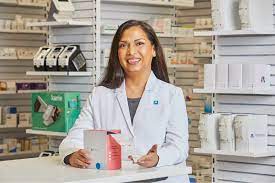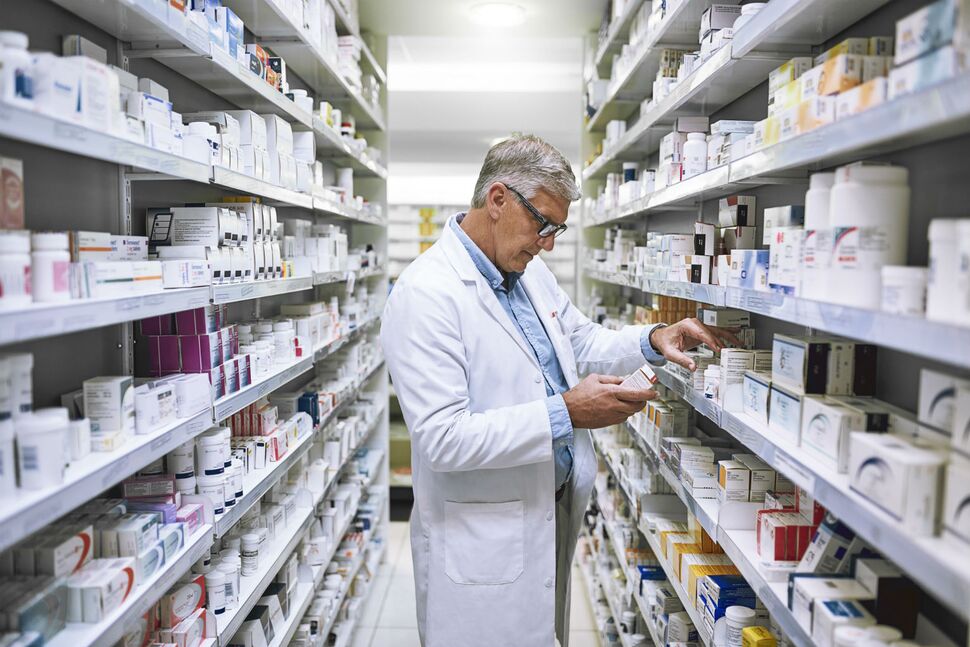Hello!
 Pharmacists are medicine experts within the healthcare system and play an important role in making sure patients get the right medication. They ensure that the quality of medications is maintained within legal guidelines and provide advice regarding patients’ treatment.
Pharmacists are medicine experts within the healthcare system and play an important role in making sure patients get the right medication. They ensure that the quality of medications is maintained within legal guidelines and provide advice regarding patients’ treatment.
You can combine your passion for science and desire to improve the lives of patients by going into pharmacy. This is a great place to work if you are interested in medicine, but not sure if being a doctor is right for you.
This sounds like the right path for you. Read on to learn more about the salary and working conditions. Also, how to get started in medicine.
Why Should You Become A Pharmacist?
Although it is not easy to learn and train for medicine-related roles, being a pharmacist can be very rewarding.
There are Many Opportunities
 There are many opportunities. Here are three areas in which you can focus your efforts:
There are many opportunities. Here are three areas in which you can focus your efforts:
Hospital Pharmacies – You will be responsible for ordering quality testing, storage, and security of medicines and drugs in hospitals.
The Retail Community Pharmacy – This involves providing prescription and over-the-counter medications to the general population and offering advice to patients about treatment.
Industrial Pharmacist – You can work for pharmaceutical companies to help create and discover new, safe, and effective drugs.
Excellent Working Conditions
The majority of pharmacists work between 37 and 40 hours per week, depending on the shift, which includes evenings, weekends, bank holidays, and weekends. Most pharmacists spend their time on their feet. They work in well-lit, ventilated areas and must wear protective clothing when handling potentially hazardous or sterile pharmaceutical products.
To ensure that care is effective and accurate, pharmacists work with other healthcare professionals day-to-day. This includes nurses, doctors, allied health professionals, scientists, and others.
High Salaries
 You will likely start in Band 6 of the Agenda to Change payscale if you are employed by the NHS. This system applies to all healthcare staff, including doctors, dentists, and top managers. Your salary will rise as you advance in your career and gain more experience.
You will likely start in Band 6 of the Agenda to Change payscale if you are employed by the NHS. This system applies to all healthcare staff, including doctors, dentists, and top managers. Your salary will rise as you advance in your career and gain more experience.
You can expect to earn around PS32,000. If you are a new pharmacist and have less than two years of experience, your salary will be approximately PS32,000. For pharmacists with less than two years of experience, you can expect to earn around PS32,000. If you have more than five years, it might rise to about PS34,000. And for those with more years in the industry, the average salary could be approximately PS39,000. The typical income range from PS32,000 to PSD45,000 depending on your experience.
You should not only get a high salary but also have at least 27 days of annual leave and bank holidays per year (NHS roles). This will increase after five consecutive years, as will a pension plan.
How to Become A Pharmacist
You will need to complete a 5-year program of practice-based and academic education in order to become a pharmacist in England and Wales. This includes a four-year MPharm degree and one year of pre-registration training.
Earn Your Degree
 This five-year program of study combines academic learning with clinical-based practice. After four years of pharmacy school, you will be eligible to earn a master’s degree. The General Pharmaceutical Council will approve this. After you have completed the one-year pre-registration training, and if you meet the GPhC requirements for fitness to practice, you must pass the GPhC Registration Assessment.
This five-year program of study combines academic learning with clinical-based practice. After four years of pharmacy school, you will be eligible to earn a master’s degree. The General Pharmaceutical Council will approve this. After you have completed the one-year pre-registration training, and if you meet the GPhC requirements for fitness to practice, you must pass the GPhC Registration Assessment.
Entry Requirements for Universities
To be eligible to enroll in the relevant university course, you must meet the requirements. Every university has its own admission criteria so make sure to visit the university’s website. The following guidelines will guide you in your application:
A minimum of five GCSEs are required for a pharmacy degree at most universities. This includes the English language and one science.
Minimum of three A-levels or equivalent subjects, such as mathematics, science, chemistry, and a second subject.
 BTEC Level 3, Access to Higher Education Diploma, or the National Extended Diploma In Applied Sciences are all examples of vocational qualifications.
BTEC Level 3, Access to Higher Education Diploma, or the National Extended Diploma In Applied Sciences are all examples of vocational qualifications.
An A-level in Chemistry is a crucial component of medical education. It provides students with an understanding of the science behind chemical reactions and medicine. These topics include intermolecular forces and acids and bases as well as oxidation-reduction. There are many courses that can help you improve your knowledge of chemistry if you feel the pressure of A levels. PMT Education offers many types of courses all over the country.
Academic year. These are tailored for the exam boards (AQA and OCR) and tutors’ “expert knowledge” and new teaching approach will ensure everything works.
A two-year Pharmacy foundation is an option for those who don’t possess the necessary qualifications to become a pharmacist. This could lead to a career as a technician or pharmacy assistant. You can then apply for your master’s degree in the second year.
Gain Work Experience
You’ll also get a year of experience and knowledge to complement your degree. Your university will help you arrange for this foundation training year, which is different from a foundation degree. This is a great opportunity to gain work experience. You can observe pharmacies, GP offices, and hospitals.
Also read:
- Using social media to promote your photography business
- 6 Ways Tech Has Revolutionized the Car Buying Process
- Swollen Toes: Everything You need to know!
Other Skills are Essential
 Each job, like any other role, requires certain skills to be successful. You will need to have excellent observation skills, communication skills, problem-solving, and analytical abilities.
Each job, like any other role, requires certain skills to be successful. You will need to have excellent observation skills, communication skills, problem-solving, and analytical abilities.
You should now have a better idea of what a pharmacy is and the steps to becoming a pharmacist. Thank you for reading and good luck!
Thank you!
Join us on social media!
See you!






